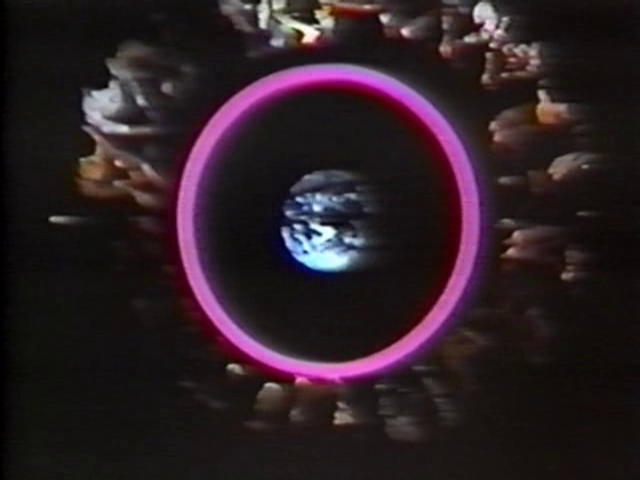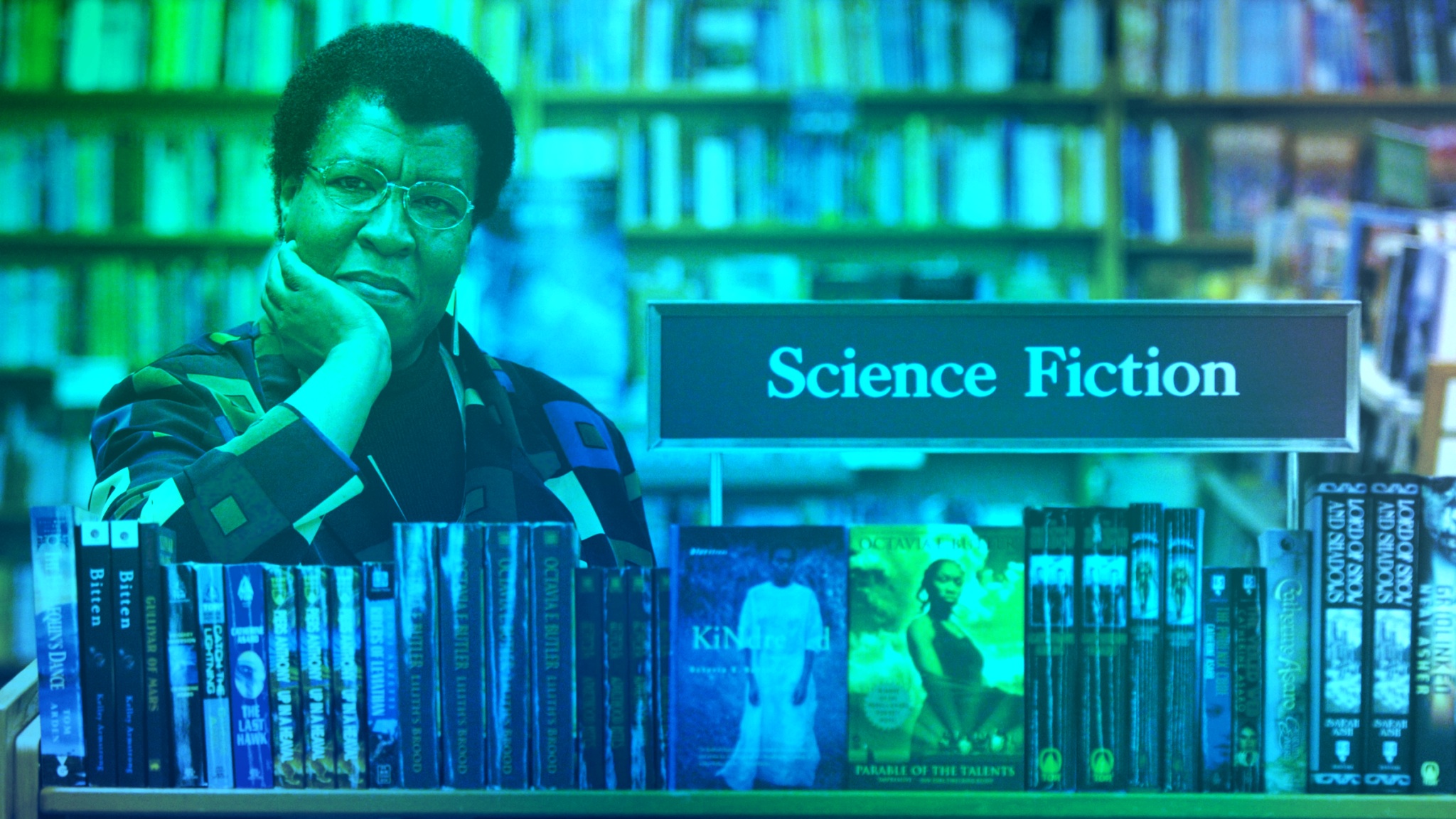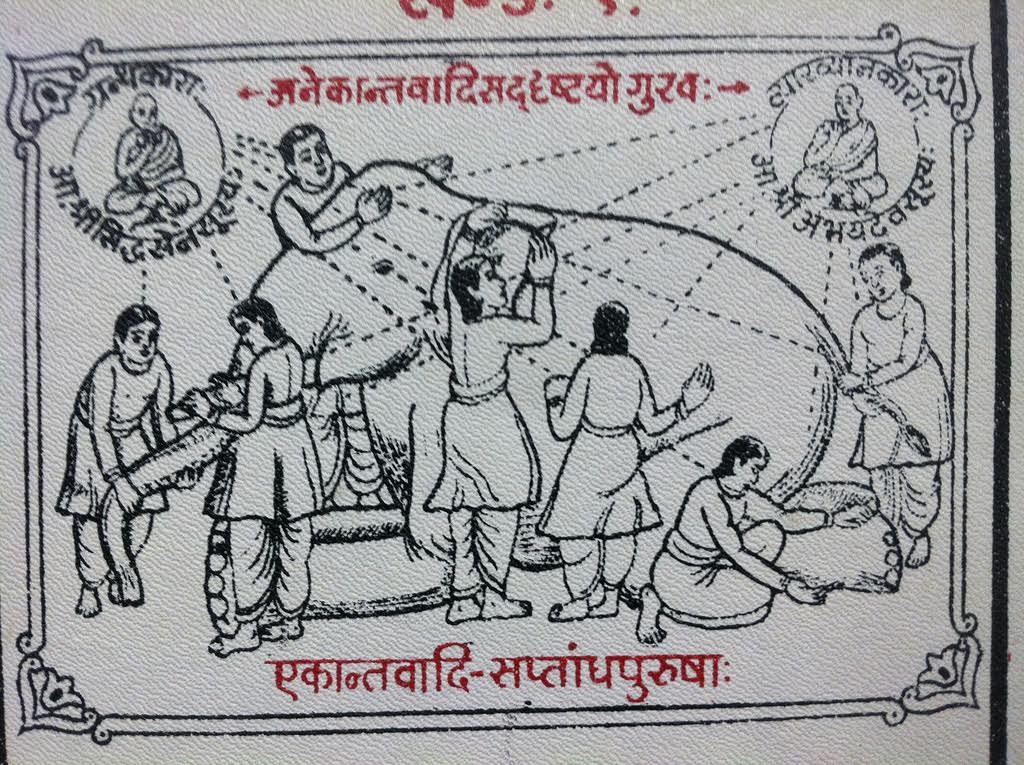information, lecture, performative publishing, project, reading session
a.pass, Moussem, SOTA, Lagrange Points A global reading of the Gaza Monologues
29 November 2023 / The Whirling Ear - Kunstberg, 1000 Brussels
International Day of Solidarity with the Palestinian People
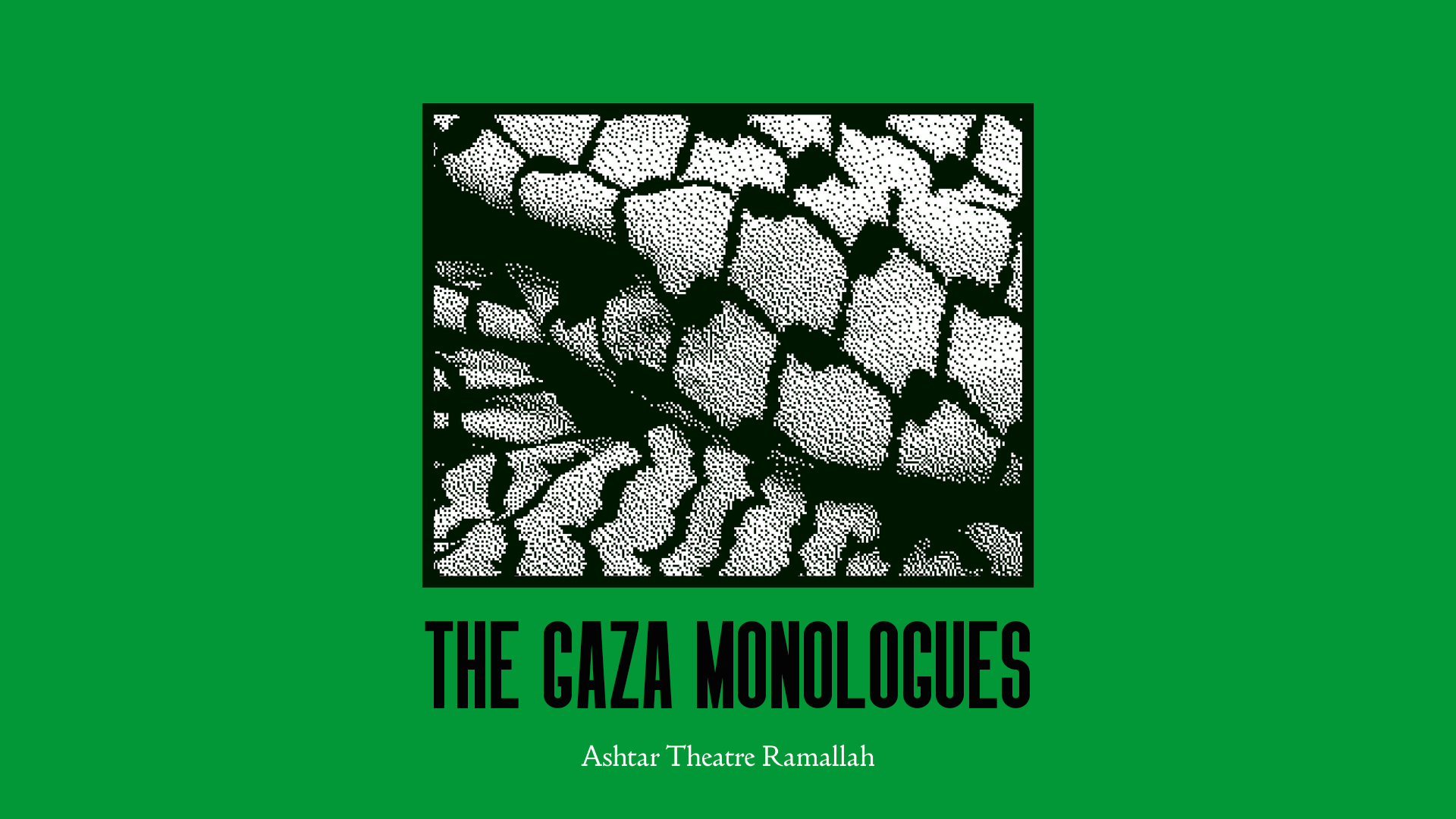
GAZA EN
The ASHTAR Theatre in Ramallah is calling on theatres and artistic organisations around the world to perform the Gaza Monologues on Wednesday 29 November and share images of the performances on social media. The play, produced by the Palestinian theatre company in 2010, consists of 31 testimonies from children and young people who lived through the war in Gaza in 2008 and 2009. In short monologues they recount what happened to them during those weeks. As the violence in Gaza has viciously erupted again, the text is as relevant today as it was 13 years ago.
The United Nations General Assembly has declared November 29 as the International Day of Solidarity with the Palestinian People. That is why ASHTAR Theatre is calling for the text to be performed again on that day.
Several cultural houses and many artists in Flanders and Brussels are responding to this call, as well as organisations in 40 other countries. Together with SOTA, Moussem and Lagrange points, a.pass will organise a reading of these monologues in different langues in the public space: at the statue of Godfrey of Bouillon in the heart of Brussels.
In exchange for the use of the text, a financial contribution will be made to ASHTAR Theatre’s fund, which is dedicated to the psychosocial well-being of Palestinian children and trauma therapy.
By reading these monologues, we want to express our solidartity with the Palestian people. Reading can give a voice to those unheard, provide a platform to the voices that are currently being silenced. We have read, heard and seen many testimonies of the victims of the brutal terrorist attack on 7.10.2023. We got to see their faces in the newspapers; on television, we heard their stories and got to know their families. And that is undoubtedly how it should be.
When it comes to Palestinians, however, we only hear numbers: 5.000 killed, 10.000 killed, 15.000 killed. Reading these 31 monologues is a call for putting a face and a voice to the thousands and thousands people, children, who lost their lives. Those that simply can’t remain unheard and unseen.
Wednesday November 29
15h-17h at The Whirling Ear Fountain
between Koningsplein/place Royale & Kunstberg/Mont des Arts 1000 Brussels
reading session, research center
Research Center Open Reading Group
22 May 2023 / online
NEW: Every second Monday 19-21h
NEXT MEETINGS
22.05.2023 19h
“Narrate, Speculate, Fabulate: Didier Debaise and Benedikte Zitouni in Conversation with Isabelle Doucet”
proposed by Gosie Vervloessem
05.06.2023 19h
Marie Bardet: “Making a Front With Our Backs” Translated by: Ellen Heaghney
Jara Rocha: “testing texting South: a political fiction”
proposed by caterina daniela mora jara
19.06.2023 20h
Silvia Rivera Cusicanqui: “Ch’ixinakax utxiwa: A Reflection on the Practices and Discourses of Decolonization”
proposed by Tulio Rosa
Read more..performative publishing, postgraduate program, reading session, seminar, workshop
Autotheory Gathering at ZSenne ArtLab: Public Program
gathering, seminar, performance
27 June-9 July 2022 / ZSenne ArtLab
In the context of Block II 2022: Scoring Intimacy of Discursive Others
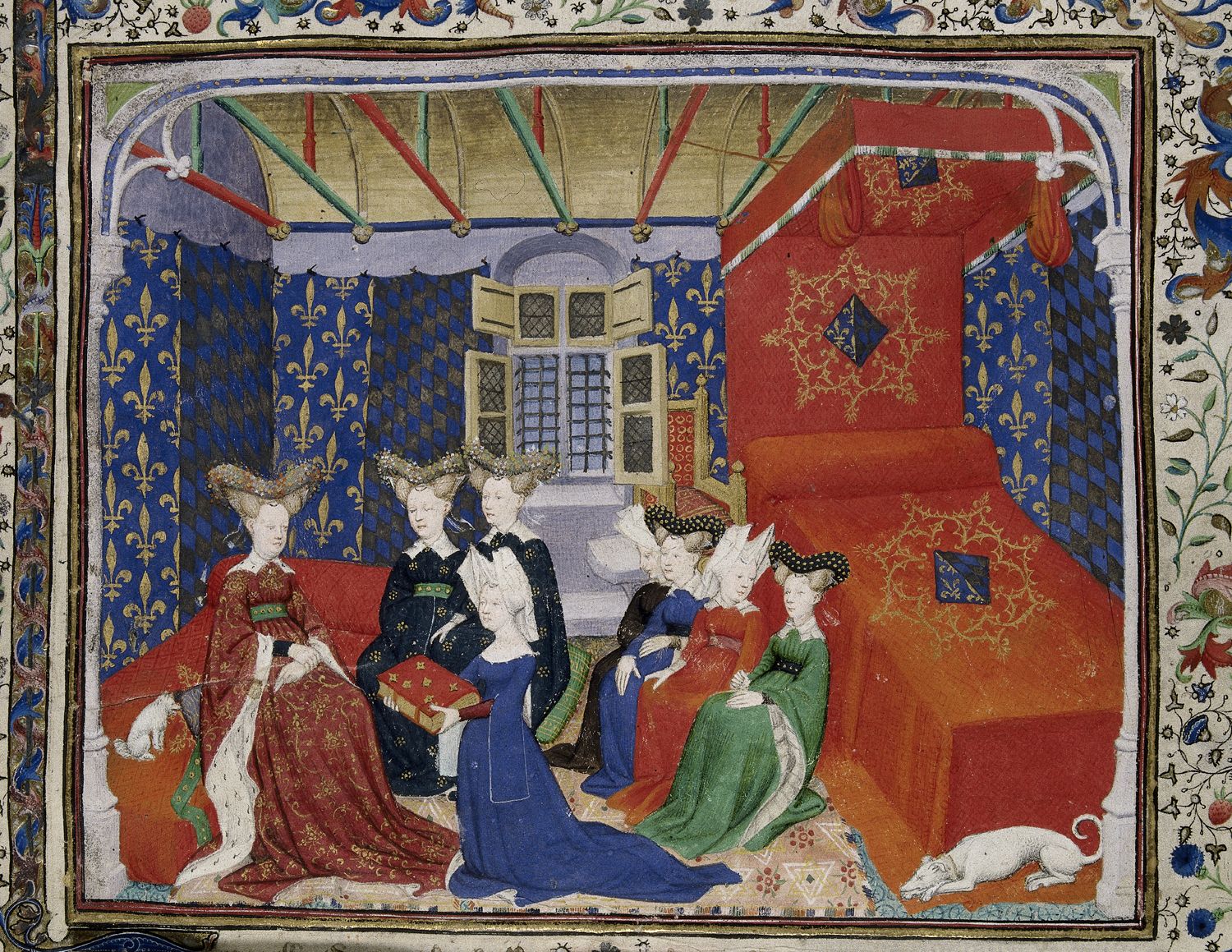
File:Christine de Pisan and Queen Isabeau (2).jpg - Wikimedia Commons
For two summer weeks (June 27 – July 10) a.pass is moving to ZSenne ArtLab in downtown Brussels, where it organizes a gathering around autotheory that brings together several approaches to the term and its relation to artistic research practices. The program includes several working sessions, a reading group, a programme of performances, and is curated by Lilia Mestre and Goda Palekaitė. To set a theoretical framework, a two-day workshop will be offered by Maria Gil Ulldemolins who will facilitate a selected library and methodological tools to be further explored during the two weeks. Associated researchers of a.pass Research Center – Gosie Vervloessem, Simon Asencio, Rareş Crăiuţ and Vijai Maia Patchineelam – will present their current processes. Finally, a.pass alumni who engage with autotheory in their practice will present their recent work in a series of performances and conversations open to the public: Chloe Chignell, Aubrey Birch, Eleanor Ivory Weber, Pia Louwerens, Marialena Marouda with Charlie Usher, Flávio Rodrigo and Philippine Hoegen, Vladimir Miller, Gary Farelly and Adrijana Gvozdenović.
Read more..postgraduate program, reading session, workshop
Not in the Mood
3 May-31 July 2021
Isabel Burr Raty, Adrijana Gvozdenović, Antye Guenther, Sara Manente, Rob Ritzen, Sina Seifee
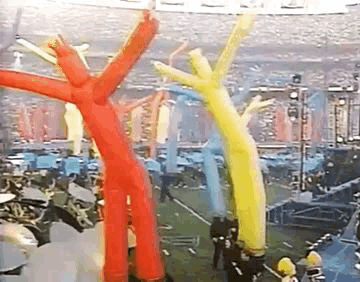
notinthemood
a.pass Block 2021 II curated by Isabel Burr Raty, Adrijana Gvozdenović, Antye Guenther, Sara Manente, Rob Ritzen, Sina Seifee –
Read more..reading session, research center
Lili Rampre Reading Session
16 July 2020 / ZSenne Art Lab
aaa
Lili Rampre’s recent developments within RC involved repurposing works of popular culture and their most prominent characteristics of an epic story to help re-narrativise group and community concerns. Lili’s long term interest in (re)imagining an audience, especially within performing arts, found a strong resonance with current examples of collective action carried out by various fan groups. In Zsenne reading session, Lili is inviting you to delve into some of the texts on citizenship through fandom as a vehicle and examples of such performances. The reading will start by addressing the proposed questions:
- how conflations between activism and fan self-aware agency can re-shape our understanding of the audience,
- potentials for public participation, civic action,
- how new civic practices of engaged audience members are defining joyous activism and with your participation move on to opening new ones, concerning your particular practices and angles, approaches to the topic.
This should not be misunderstood as an extension of the already well developed sociology and anthropology of fandom, but rather as the critical reappraisal that emergent large popular assemblages of self-identifying communities are an under-utilized and under-recognized potentiality for “performance” proper.
Read more..postgraduate program, reading session, workshop
Einat Tuchman Traveling through square liberateurs – Molenbeek
12-12 July 2019 / Square des Libérateurs, 1080 Molenbeek-Saint-Jean
Taking a distinctive look at the divergent attitudes towards the environment and the social struggles in these different locations, we will learn about the prototypical difficulties and potentials of such culturally dense urban areas. For this I'm inviting you into my neighbourhood, to discover the "Quartier Liberateurs ".
Read more..reading session, research center
Monday Readings Streaming media
16 June 2018 / Szenne Artlab, Anneessensstraat 2
on demand, content-delivery, broadcast
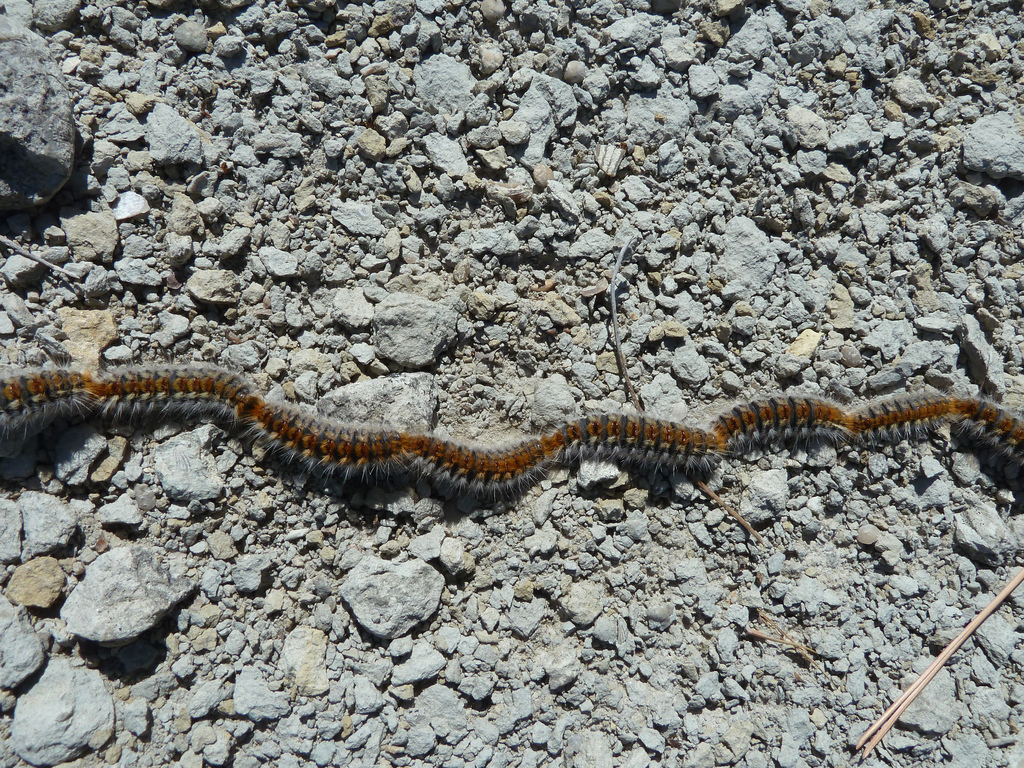
dennenprocessierups
This extra edition of the Monday reading actually takes place on a Saturday in Szenne artlab. In the context of Parallel-parasite, a residency of the a.pass Research Center, we will focus on the shape-shifting nature of streaming media. After sessions on text processing, local servers and key cards, we will continue with an exploration of streaming, a coverall term for the dominant way that audio and visual content is being delivered on the Internet today. We will read into the different technical protocols that are regulating those flows, and the diverging economies that software like Torrent trackers and companies like Youtube, Netflix construct. By considering how the continuous experience of streaming relies on various politics of separation, re-ordering discrete elements on delivery, we will observe how the production, sharing and consumption of media is radically changing. Session organised with Martino Morandi.
Read more..reading session, research center
Monday Readings Databases
16 April 2018 / a.pass, 3rd floor
Stickyness, stopping points, consistency, routines, mnemosyne
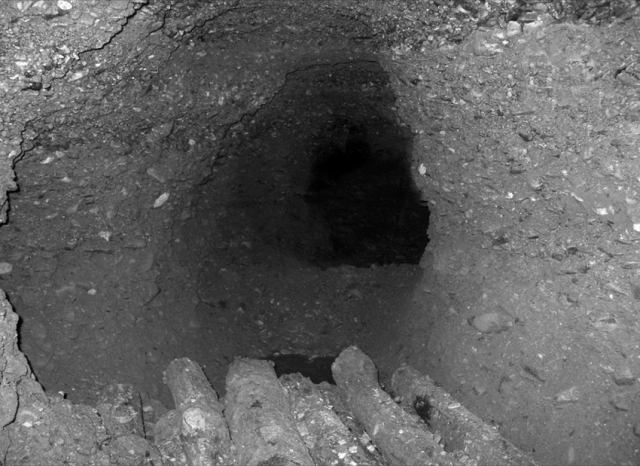
mark_manders_hammer_15d.640x0
This Monday Reading prepared with Sina Seifee will be dedicated to the intricate structures of the ubiquitous database. Browsing the tables and rows of this very website, we will try to graps the affordances and limits of organising the world as a collection of digital data.
Read more..reading session, research center
Monday Readings Keycards
19 March 2018 / a.pass, 3rd floor
Movement, security, smartness
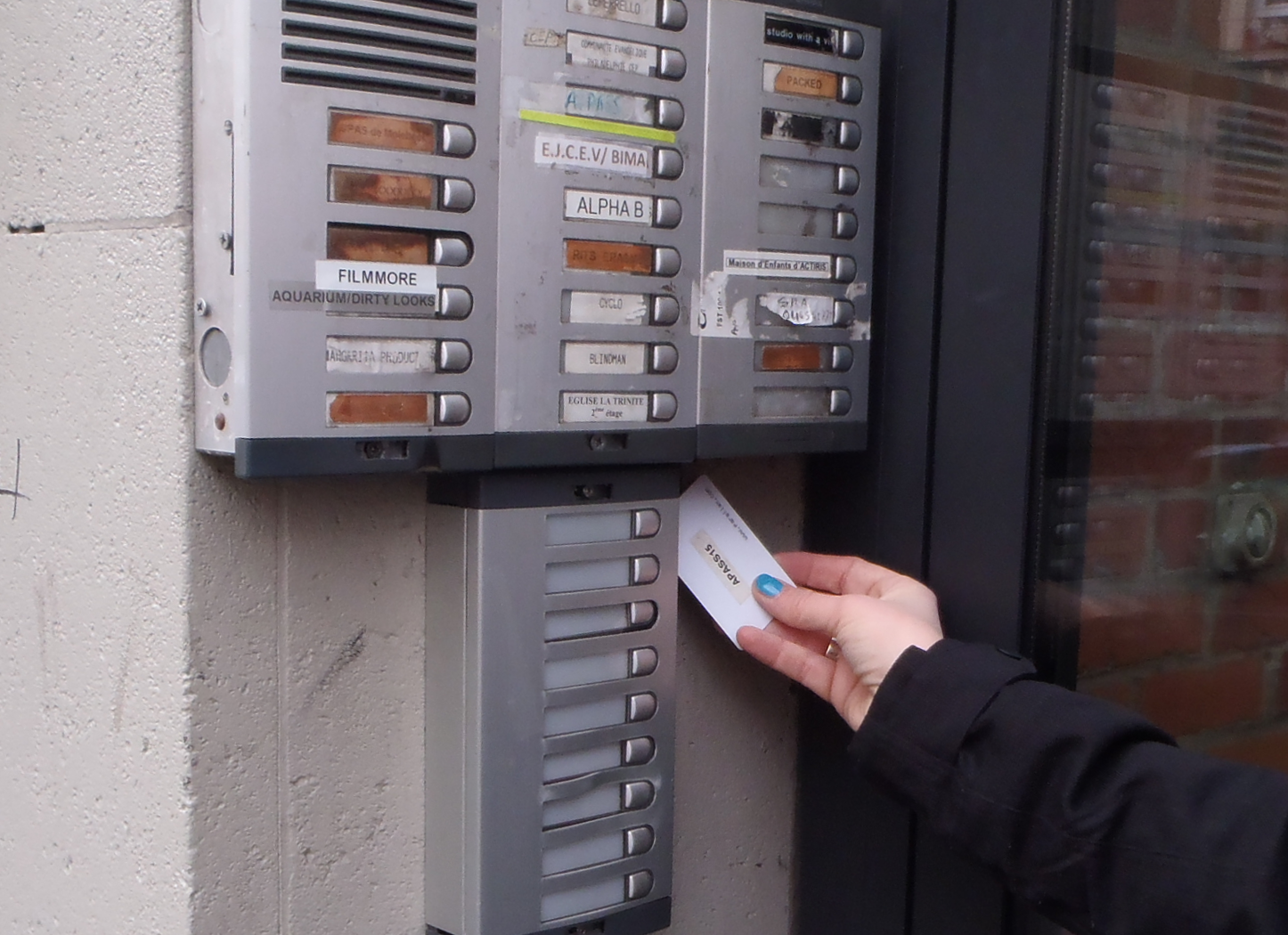
P3060071
For this Monday Reading we will follow the path of the keycard system that opens the outside doors at a.pass. What does it mean when opening a door becomes part of a data-flow?
Read more..reading session, research center
Monday Readings Encoding and compression
26 February 2018 / a.pass, 3rd floor
Monday Readings
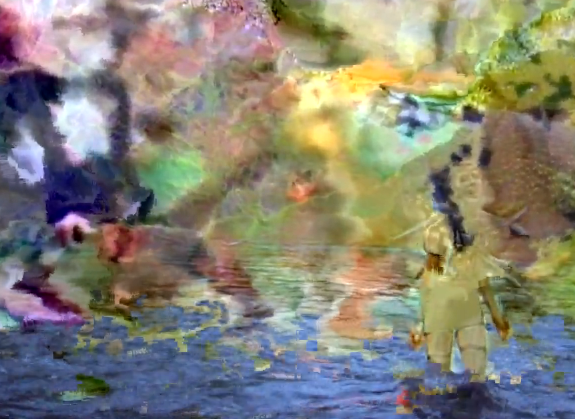
compression artifact
“Codecs perform encoding and decoding on a data stream or signal, usually in the interest of compressing video, speech, or music. […] Software such as codecs poses several analytical problems. Firstly they are monstrously complicated. […] Second, at a phenomenological level, they deeply influence the very texture, flow and materiality of sounds and images. […]
Read more..reading session, research center
Monday Readings Local server
5 February 2018 / a.pass, 3rd floor
Servers and hosts
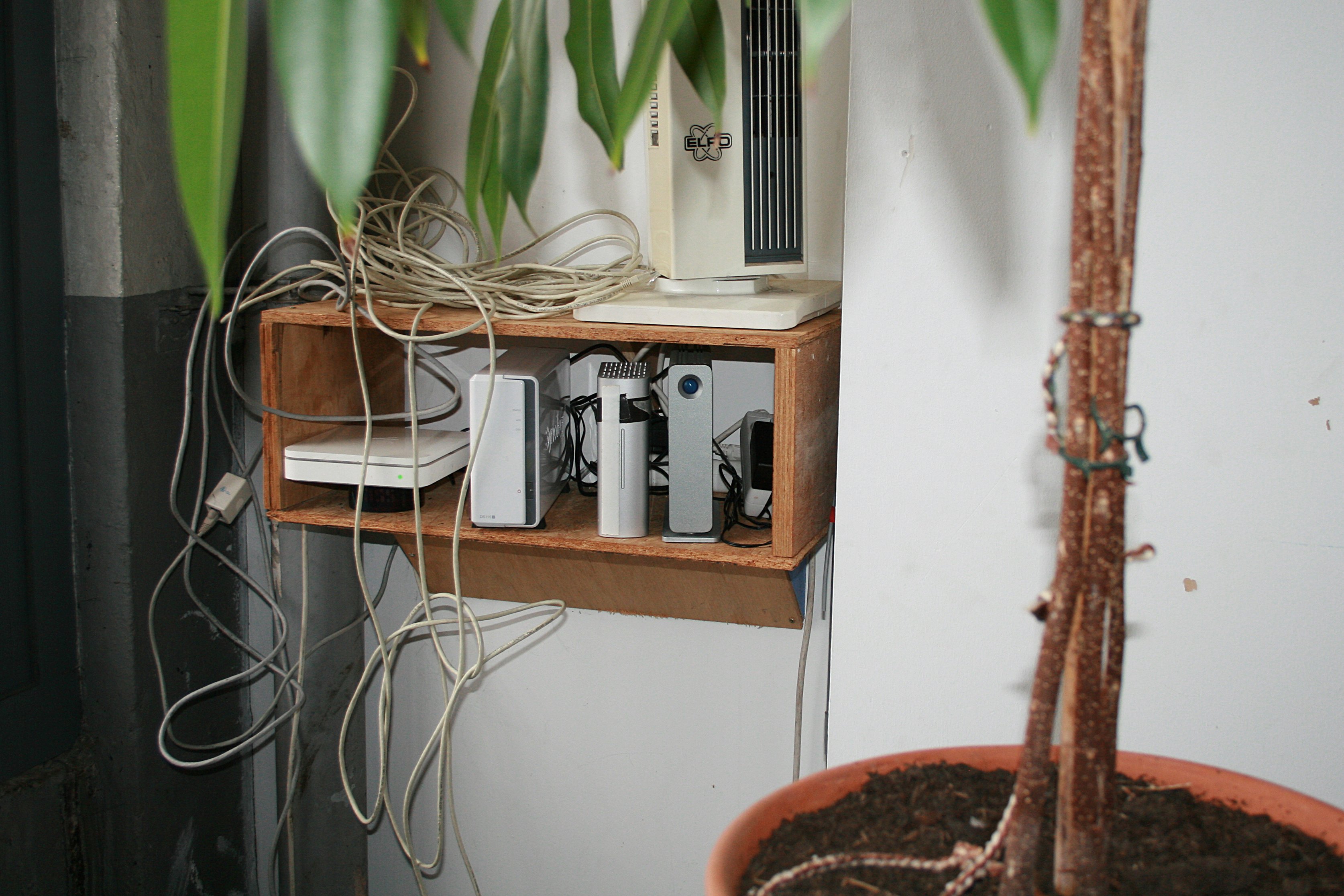
IMG_7910
In the lexicon of networks, any computer connected to the Internet is called a host. This means that all computers have the ability to host content. But in the current paradigm of the Internet, some hosts are designated to be serving (servers), and other hosts are to be served (clients).
Read more..reading session, research center
Monday Readings Text processing
15 January 2018 / a.pass, 3rd floor
characters, language and code
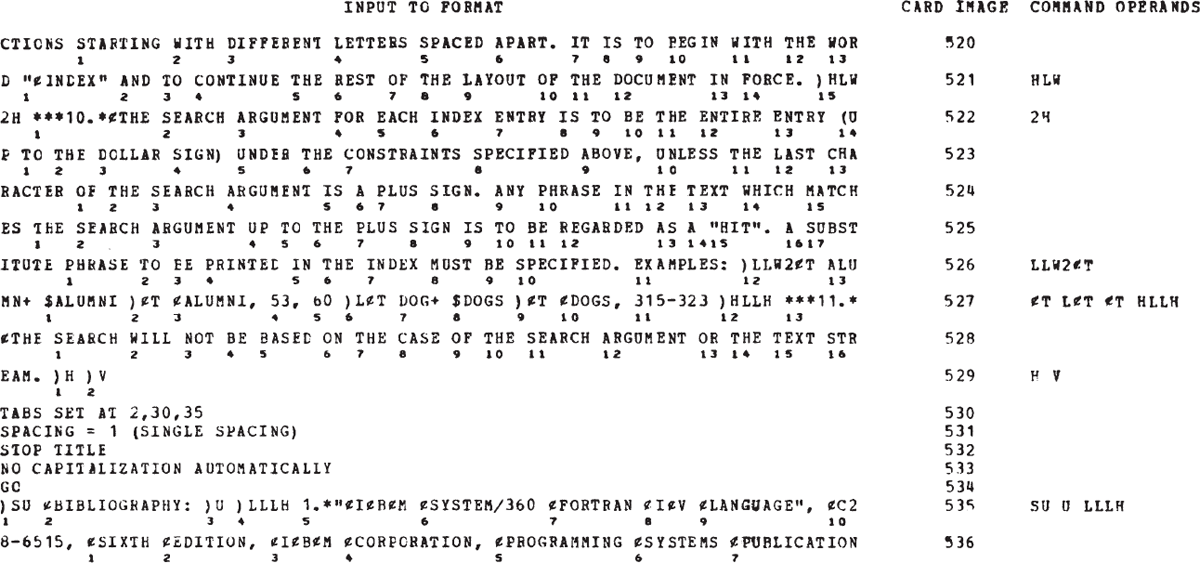
FORMAT
This first Monday Reading will be dedicated to text processing. We will discuss concepts such as What You See Is What You Get (WISYWYG), the virtues of ascii, what the differences are between writing, language, code, formatting and markup, and how our keyboards perform.
Read more..reading session, research center
Monday Readings
15 January-16 April 2018
Reading across technical tools and theoretical devices
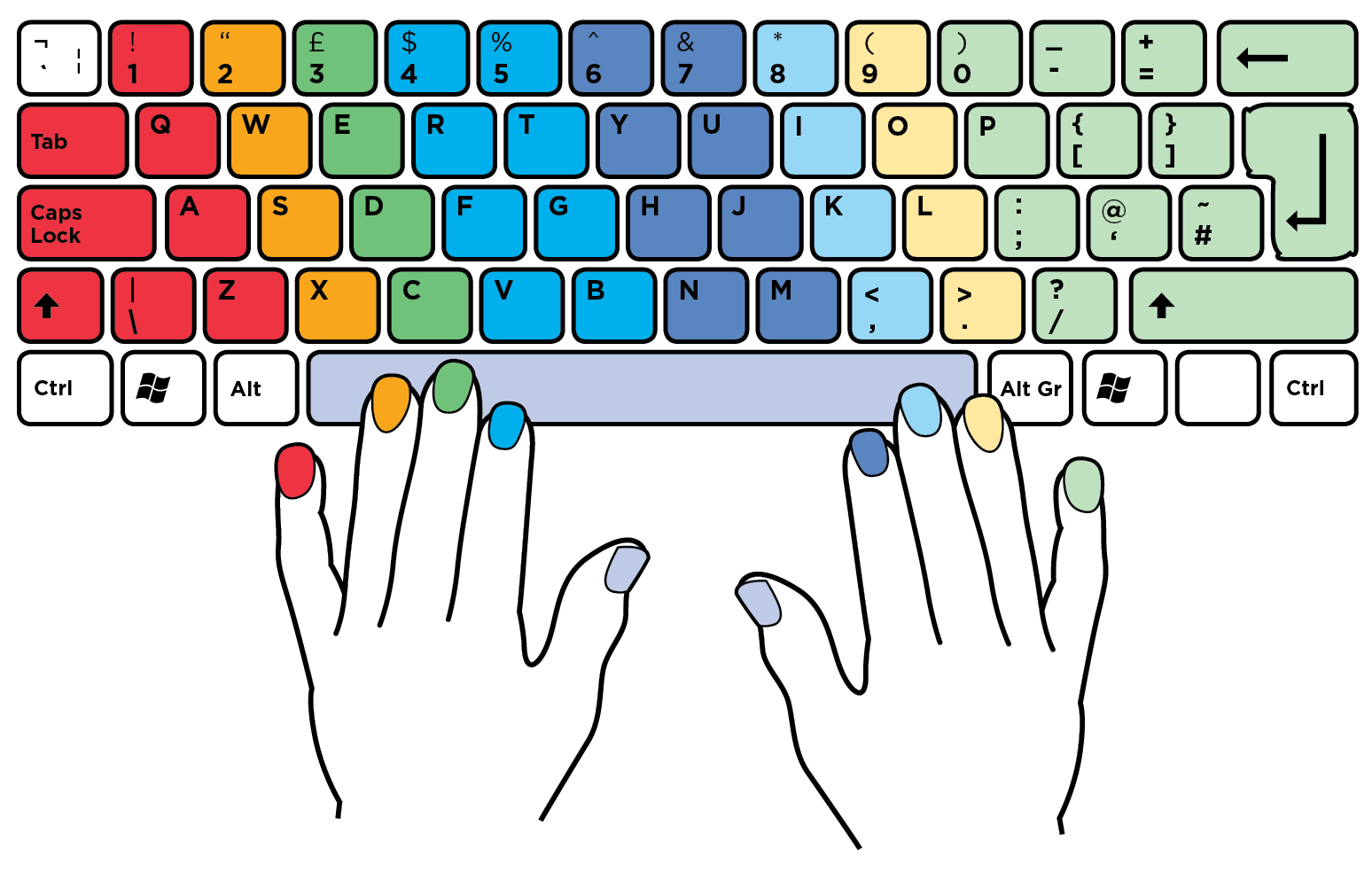
Keyboard
In cultural institutions like a.pass, digital tools are used for communication, archiving, administration and production. These computational infrastructures depend more often than not on the services of tech giants and are put to use without too much space for reflection on how they actually work. If we want to bring technology within reach of interrogation and critique, how to break the spell of those paralysing regimes? How to shift the relationship from efficiency to curiosity; from scarcity to multiplicity and from solution to possibility?
Read more..postgraduate program, reading session
Caroline Godart and Marialena Marouda Feminist Benjamin Reading Group
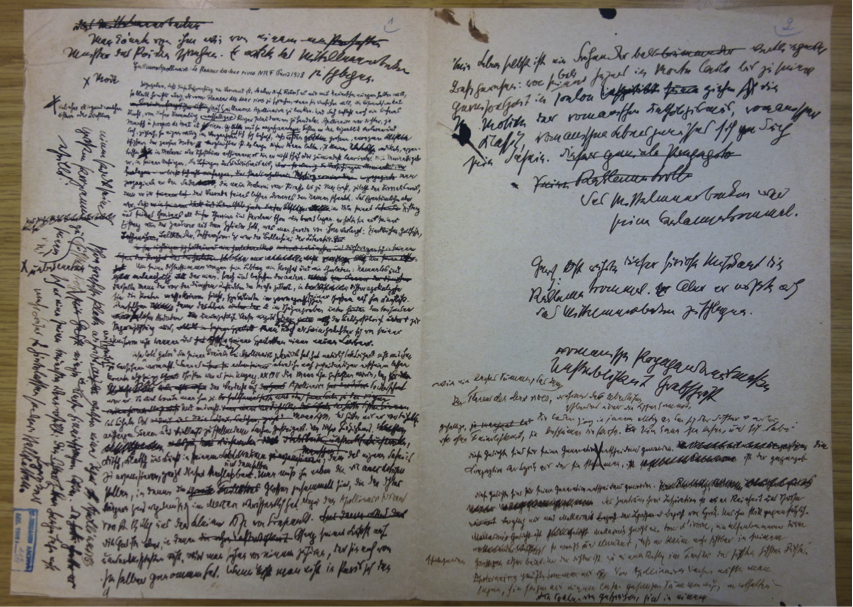
"Arcades Project" copyright Judith Wechsler
"What does it mean to read as a feminist? The question may seem odd, or even trivial, but it engages the very ground of our work as artists and thinkers. Indeed, how is our reflection oriented, if not by the very way in which we turn to the text? And yet, when we think about methodologies and epistemologies, we rarely interrogate the practice of reading itself. We want to propose another form of feminist reading: instead of the critical, distrustful distance, we suggest that closeness and intimacy may form an equally powerful approach. In this reading group, we examine what feminist thinking can become when it takes the shape of a lover’s response to a text’s seduction, and when refutation and penetration are replaced by a mode of reading that is founded in an ethics of proximity."
Read more..postgraduate program, reading session
YOU CALL THIS PROGRESS ?! 4/4
20 March 2017 / a.pass
(revisiting SF Cinema) curated by Dehens & Kaplunova
YOU CALL THIS PROGRESS!? is a series of screenings revisting SF-Cinema with a focus
on 'other' (non-)western SF. It aims to look critically at the genre as well as to reconsider
the potential of the genre to look critically. The series includes films and shorts from the
trenches of Soviet SF, the esoteric SF of Unarius, old, new and queer interpretations of SF,
early works by Black Audio Film Collective, an opening to Russian cosmism, works by
Chris Kraus, early Cronenberg, something called Betaville, trailers and more.
Read more..postgraduate program, reading session
Book Club #9 Language as Magic and the Language of Things
17 March 2017 / a.pass
Book Club Series / Caroline Godart & Marialena Marouda
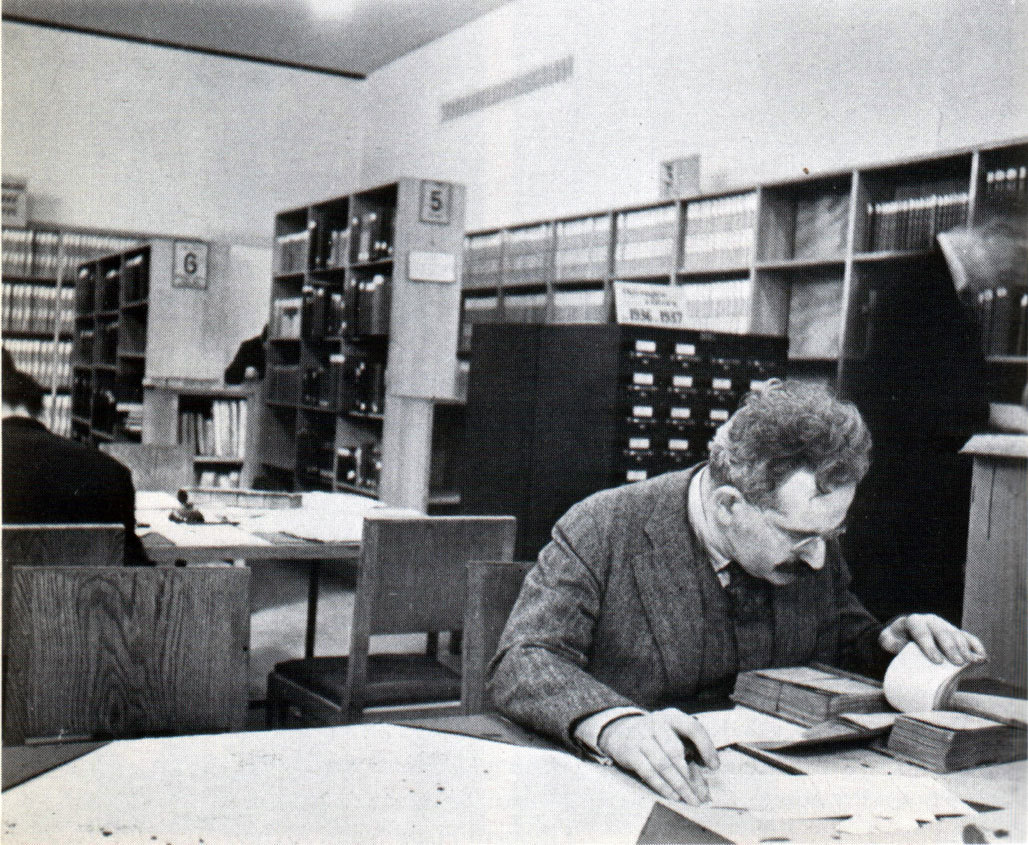
Walter Benjamin in the National Library in Paris, 1937, taken by Gisèle Freund © bpk | IMEC, Fonds MCC | Gisèle Freund
In the essay “On Language as Such and on the Language of Man” Benjamin proposes a language metaphysics that extends to every thing. Every thing has a language: objects, animals, human beings but also immaterial things, like the Arts or Technology. For Benjamin language is therefore a medium going very much beyond human language and the communication through words. One could say language is the way in which some thing – indeed every thing – communicates itself to the world.
Read more..postgraduate program, reading session
YOU CALL THIS PROGRESS?! 3/4
6 March 2017
(Revisiting SF Cinema) curated by Dehens & Kaplunova
YOU CALL THIS PROGRESS!? is a series of screenings revisting SF-Cinema with a focus
on 'other' (non-)western SF. It aims to look critically at the genre as well as to reconsider
the potential of the genre to look critically. The series includes films and shorts from the
trenches of Soviet SF, the esoteric SF of Unarius, old, new and queer interpretations of SF,
early works by Black Audio Film Collective, an opening to Russian cosmism, works by
Chris Kraus, early Cronenberg, something called Betaville, trailers and more. NO SUCH THING AS GRAVITY!
Read more..postgraduate program, reading session
YOU CALL THIS PROGRESS?! 2/4
16 February 2017 / a.pass
(Revisiting SF Cinema) curated by Dehens & Kaplunova
YOU CALL THIS PROGRESS!? is a series of screenings revisting SF-Cinema with a focus
on 'other' (non-)western SF. It aims to look critically at the genre as well as to reconsider
the potential of the genre to look critically. The series includes films and shorts from the
trenches of Soviet SF, the esoteric SF of Unarius, old, new and queer interpretations of SF,
early works by Black Audio Film Collective, an opening to Russian cosmism, works by
Chris Kraus, early Cronenberg, something called Betaville, trailers and more.
NO SUCH THING AS GRAVITY!
Read more..postgraduate program, reading session
Book Club #5 Sacred Drift, a journey into political consciousness of sound
16 February 2017 / a.pass
Book Club Series / Peggy Pierrot
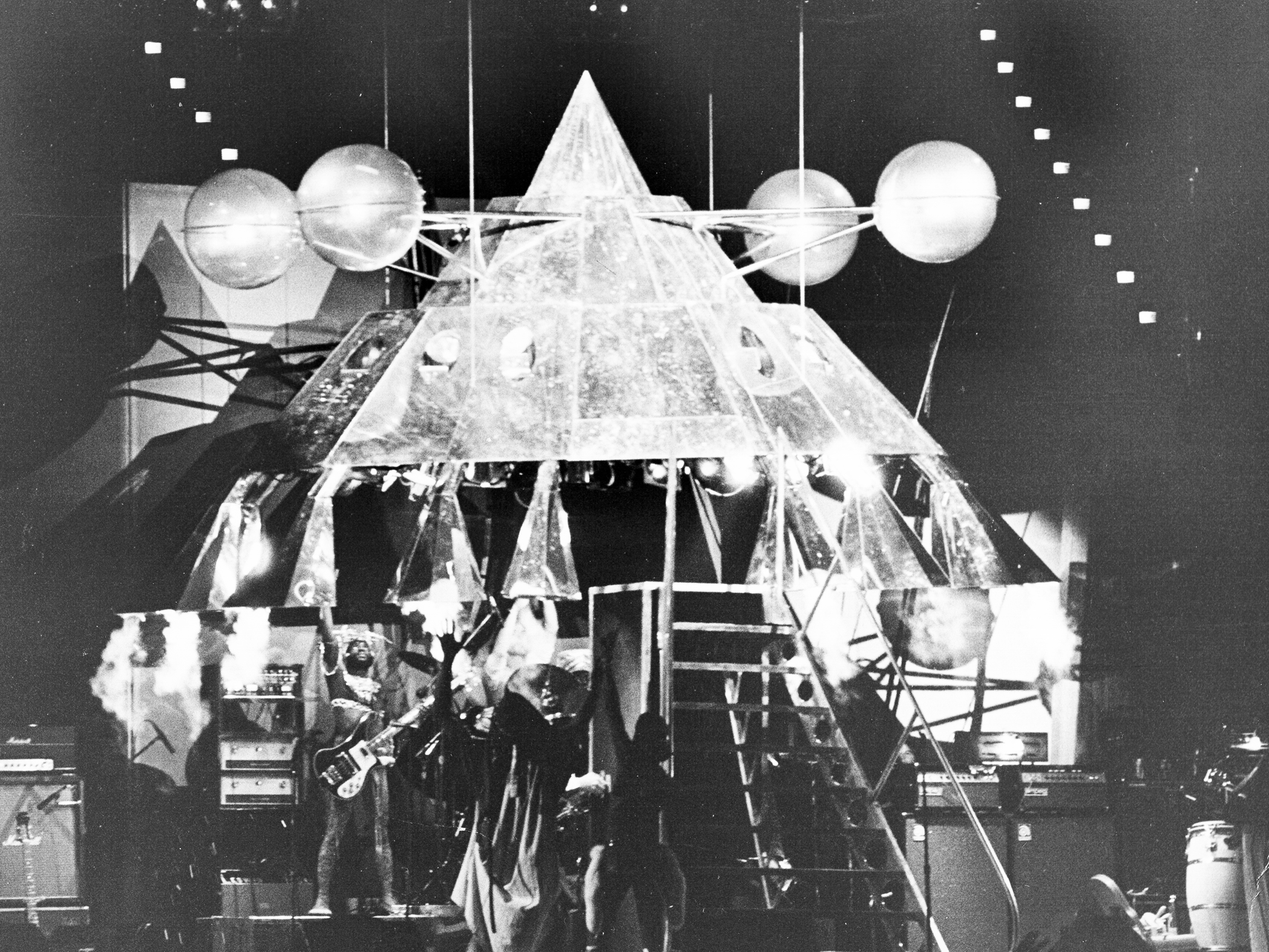
George Clinton emerges from Parliament-Funkadelic's Mothership on June 4, 1977, at the Coliseum in Los Angeles
Is there something to hear between the 0 and the 1 of digitized compressed music? Is there something to de-cypher in our coded Nyabinghi drums? What is the message hidden between themes, rythms, intonations, improvisations, the samples, the drum, the bass, the cuts and the pastes? and what kind of mental space or imaginary frame allowed/constrained the emergence of a futuristic post-modern culture within the Black Atlantic ?
We’ll build or we’ll destroy.
We’ll learn about the Know-Ledge.
Read more..postgraduate program, reading session
Book Club #2 Black Atlantic & Speculative Fiction
26 January 2017
Book Club Series
Revisiting Paul Gilroy's Black Atlantic in relation with afro-american SF and in particular Octavia Butler's.
Read more..postgraduate program, reading session
Book Clubs #3 & #4 Situated Knowledge
2-9 February 2017 / a.pass
Book Club Series / Sina Seifee
Reading Sessions of Donna Haraway's essay 'Situated Knowledges: The Science Question in Feminism and the Privilege of Partial Perspective'.
This reading focuses on politics and epistemologies of location, positioning, and situating in our power-sensitive conversations, and what does it mean to become accountable and responsible for one's own noninnocent translations.
Read more..postgraduate program, reading session
YOU CALL THIS PROGRESS?! 1/4
30 January 2017 / a.pass
(Revisiting SF Cinema) curated by Dehens & Kaplunova
YOU CALL THIS PROGRESS!? is a series of screenings revisting SF-Cinema with a focus
on 'other' (non-)western SF. It aims to look critically at the genre as well as to reconsider
the potential of the genre to look critically. The series includes films and shorts from the
trenches of Soviet SF, the esoteric SF of Unarius, old, new and queer interpretations of SF,
early works by Black Audio Film Collective, an opening to Russian cosmism, works by
Chris Kraus, early Cronenberg, something called Betaville, trailers and more.
NO SUCH THING AS GRAVITY!
Read more..postgraduate program, reading session
Book Club #1 COGNITIVE ESTRANGEMENT
19 January 2017 / a.pass
BOOK CLUB SERIES / Sol Archer
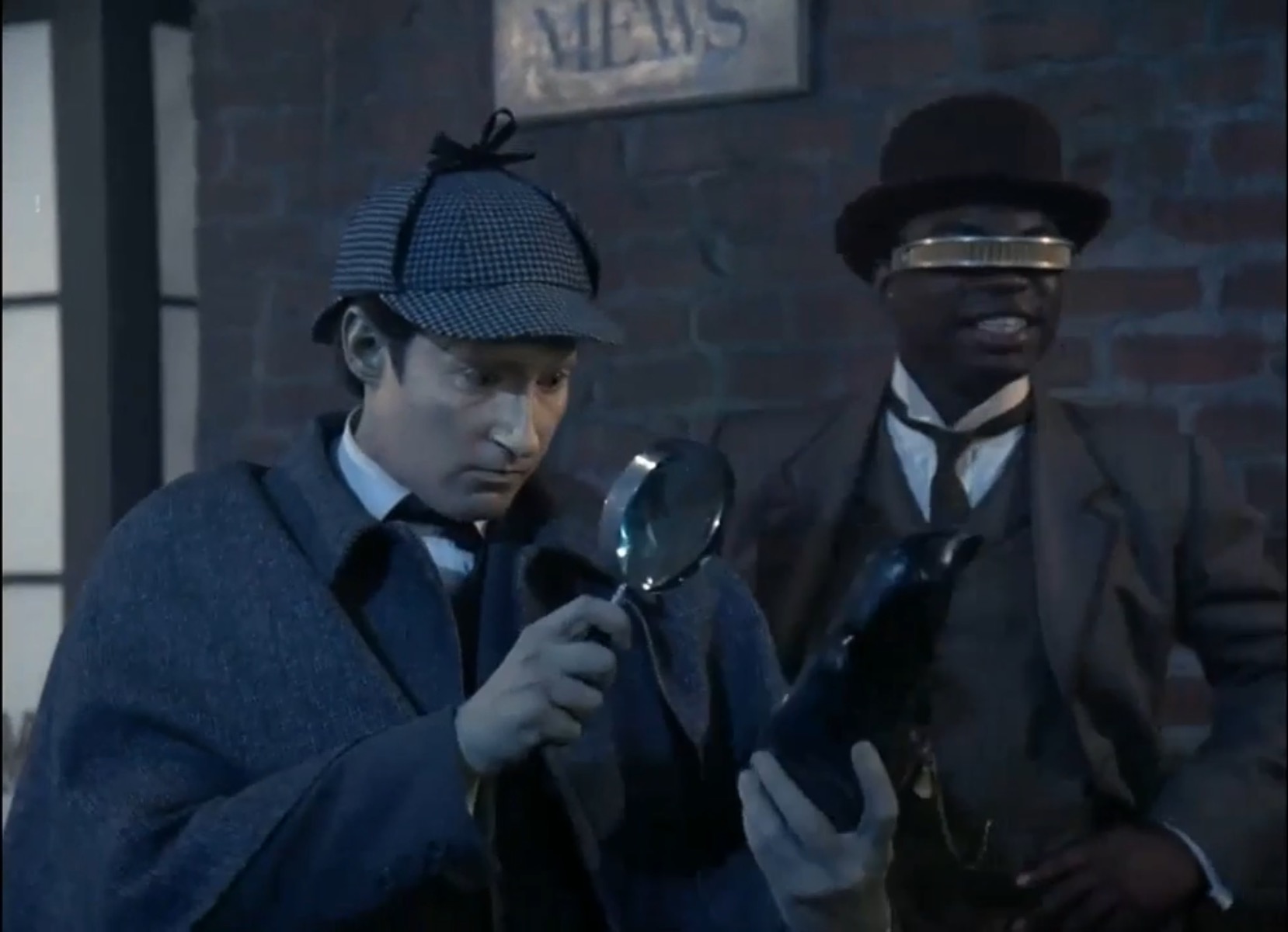
Data and Geordi as Holmes and Watson, Star Trek: The Next Generation
Starting with Darko Suvin's ideas of Cognitive Estrangement, we will look at some of the mechanisms and functions of science fiction, and consider how the imagining of alternative realities operates is a critical gesture with which to view consensus reality
Read more..reading session
Culture: The Universal Animal – Eduardo Viveiros de Castro
13 May 2015
Contribution for the discussion about totemism, animism, and naturalism. Lecture by Viveiros de Castro. "Animism could be defined as an ontology which postulates the social character of relations between humans and non-humans: the space between nature and society is itself social. Naturalism is founded on the inverted axiom: relations between society and nature are themselves natural. Indeed, if in the animic mode the distinction "nature/culture" is internal to the social world, humans and animals being immersed in the same socio-cosmic medium (and in this sense, "nature" is a part of an encompassing sociality), then in naturalist ontology, the distinction "nature/culture" is internal to nature (and in this sense, human society is one natural phenomenon amongst others). Animism has "society" as the unmarked pole, naturalism has "nature": these poles function, respectively and contrastingly, as the universal dimension of each mode. Thus animism and naturalism are hierarchical and metonymical structures."
Read more..postgraduate program, reading session, research center
Reading Circle
11 May-29 August 2015 / a.pass
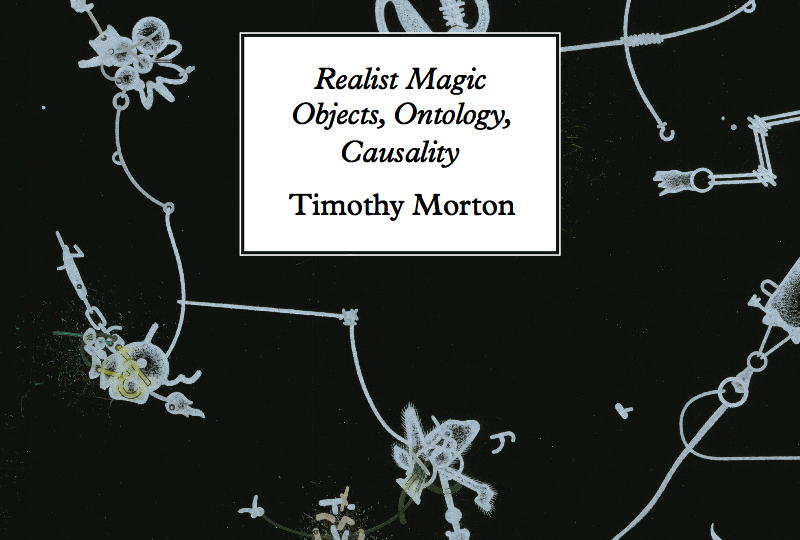
Cover Illustration by Tammy Lu
As a red thread throughout the block the participants engage in a weekly communal reading practice of the book ‘Realist Magic – Object, Ontology, Causality’ by Timothy Morton.
Reading and discussing in-depth this one central text allows for the development of a common ground of reference and connection that functions as a backdrop to the workshops and practices that shape the block. The Reading Circle happens on Monday evenings from 6pm to 10pm.














